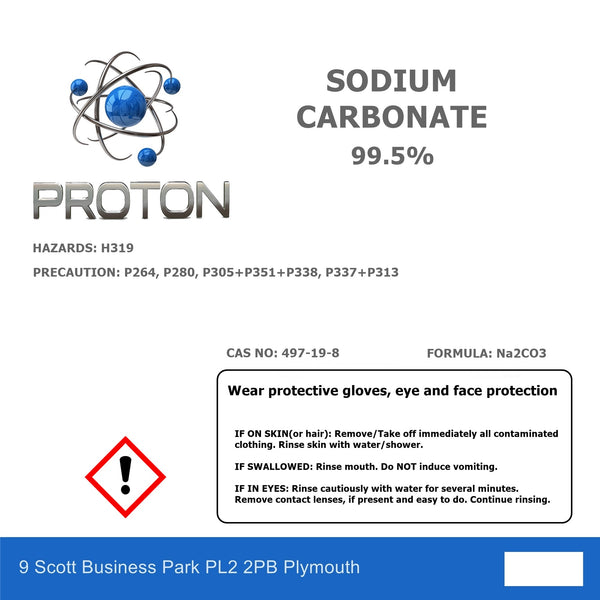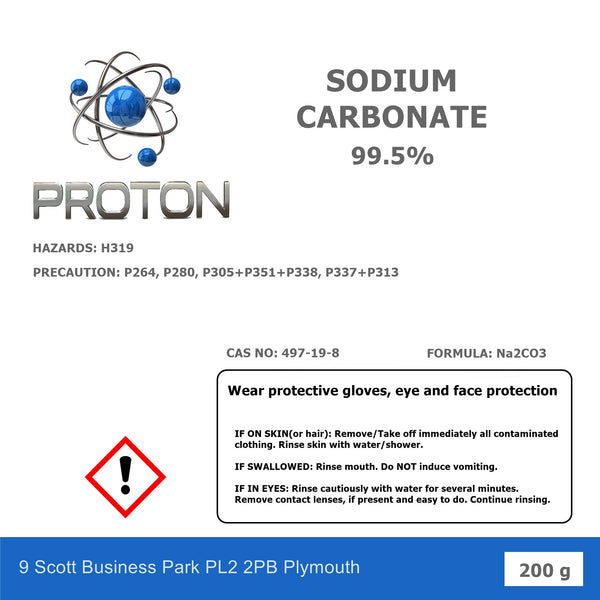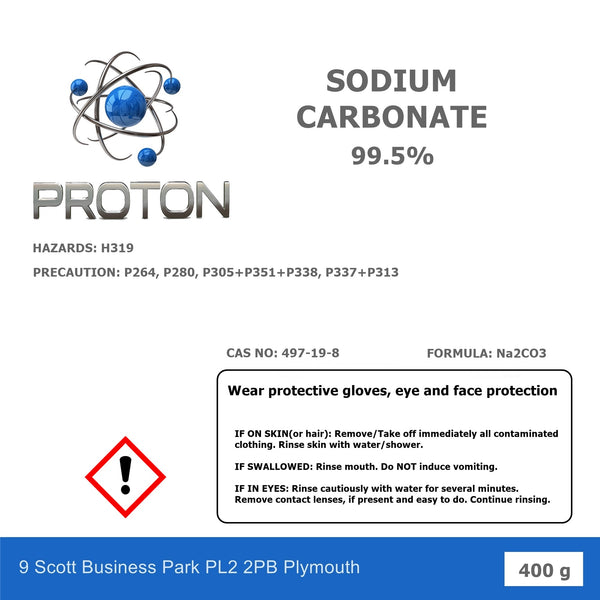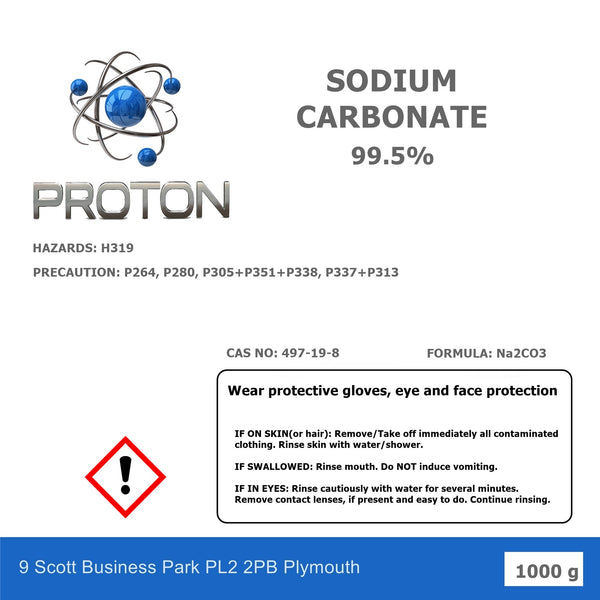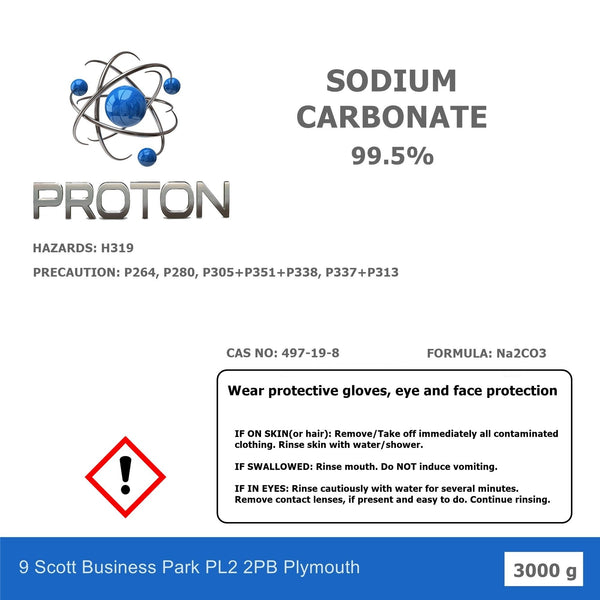Sodium Carbonate 99.5%
Sodium Carbonate 99.5%
Buy 1, Get 1 25% Off 🔥 — 🛒 Add 2 to Basket — Mix & Match PROTON
Sodium Carbonate 99.5% (Soda Ash) is a high-strength alkaline powder widely used for heavy-duty cleaning, degreasing, water softening, pH adjustment, and general household or industrial maintenance. This fast-dissolving crystalline powder is supplied in secure grip-seal bags and available in multiple sizes for home, workshop, and commercial use.
⭐ Key Uses
-
Water softening and laundry boosting
-
Heavy-duty cleaning and degreasing
-
pH adjustment for pools, spas and maintenance solutions
🧪 How to Use
1️⃣ Laundry Booster / Water Softening
-
Add 20–30 g of sodium carbonate directly to the washing drum.
-
Combine with your regular detergent.
-
Wash as usual for improved cleaning and softened water.
Safety: Avoid using on delicate fabrics.
2️⃣ Heavy-Duty Degreasing Solution
-
Dissolve 50 g of soda ash in 1 litre of hot water.
-
Apply to greasy surfaces using a cloth or brush.
-
Rinse thoroughly with clean water after cleaning.
Safety: Wear gloves and avoid contact with aluminium surfaces.
3️⃣ Pool & Spa pH Adjustment
-
Add 10 g of sodium carbonate per 1,000 litres of pool water.
-
Dissolve in a bucket of warm water before dosing.
-
Retest pH and repeat slowly if needed.
Safety: Never mix with chlorine products.
📋 Product Details
Concentration: 99.5%
Grade: Technical / Industrial Grade
Form: White Alkaline Powder
Packaging: Grip-seal bags
Available Sizes: 200g, 400g, 1kg, 2kg, 3kg, 4kg
📈 Other Names
-
Soda Ash
-
Sodium Carbonate Anhydrous
-
Washing Soda
SEO Keywords: sodium carbonate soda ash, washing soda 99%, heavy-duty cleaner soda ash, pool pH increaser sodium carbonate, water softening powder, PROTON sodium carbonate, degreaser soda ash
❓ FAQ
1. Can Sodium Carbonate be used for cleaning?
Yes. It is a powerful alkaline cleaner ideal for degreasing, descaling, and heavy-duty cleaning tasks.
2. Is this product safe for pools and spas?
Yes. Sodium carbonate is commonly used to raise pH levels in pool and spa maintenance.
3. Is Sodium Carbonate the same as Baking Soda?
No. Sodium carbonate is stronger and more alkaline than sodium bicarbonate and should not be used for food.
Buyer assumes all responsibility for safety and use not in accordance with directions.






